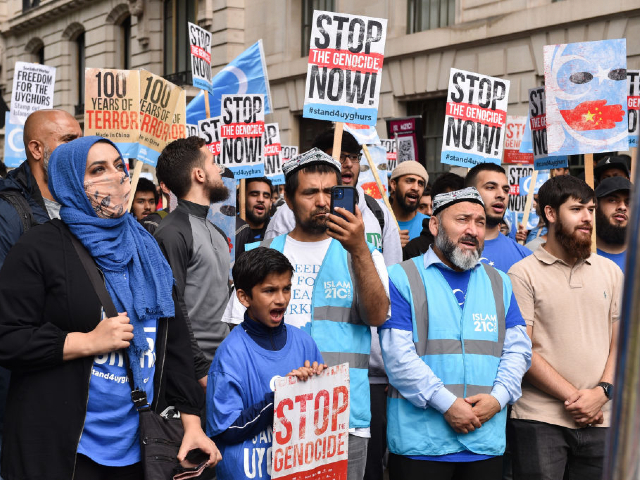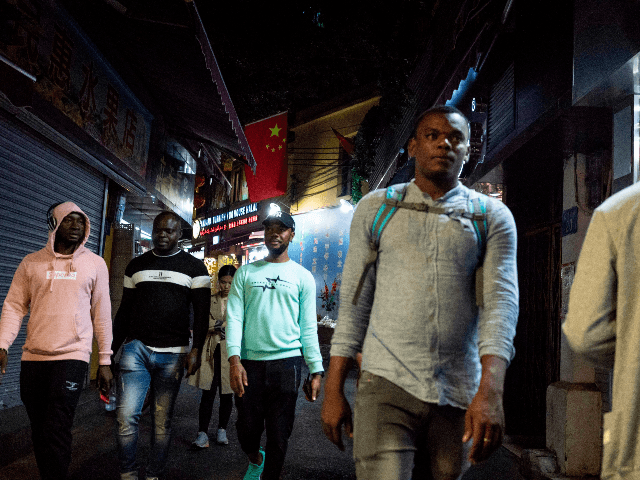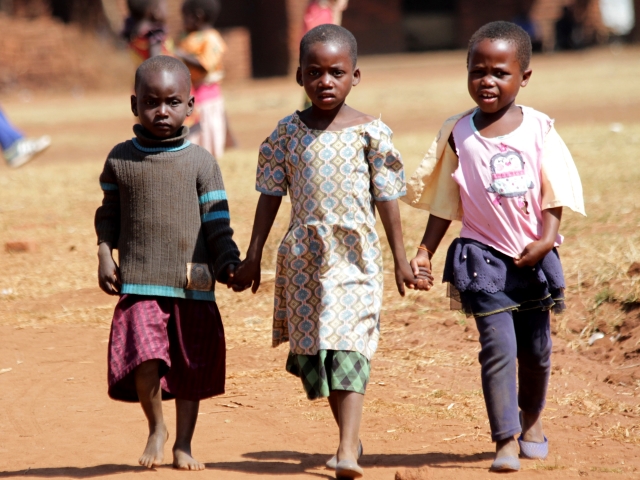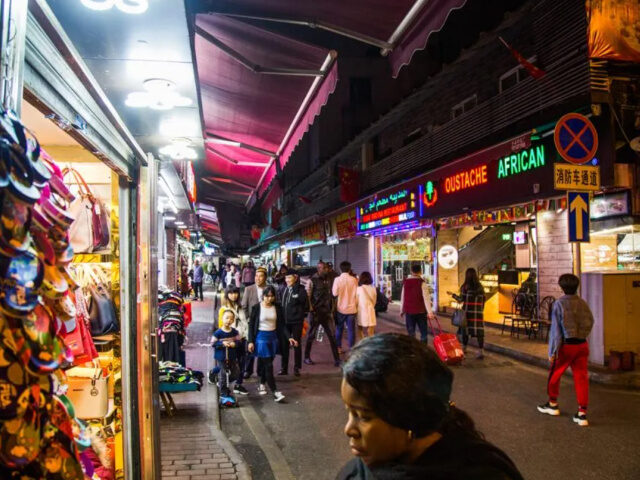The international organization Human Rights Watch denounced the government of China on Wednesday for rapidly censoring any perceived anti-communist content online while “pervasive hate speech against black people” faces no such restrictions.
Human Rights Watch found a flood of content on Communist Party-controlled social media websites such as Weibo, Douyin (Tiktok), and Bilibili insulting or mocking black people. Many social media users targeted black people in China, demanding the government ban black people from living in the country; others insulted Han Chinese people who engaged in interracial relationships or sent them death threats. A charity organization that aided African immigrants in southern Guangzhou, an immigrant hub, experienced regular accusations of being “Han traitors” as well as threats for helping foreigners.
The organization urged the Communist Party to use its censorship apparatus to “remove racist content” and use “nonpunitive” measures to educate the Han population against prolifically generating racist content.
The Chinese Communist Party is one of the world’s most bigoted government entities, currently engaging in the largest-scale genocide on earth against Uyghurs, Kazakhs, Kyrgyz people, and other majority-Muslim Turkic minorities in the occupied region of East Turkistan. Other non-Han ethnic groups, such as Mongolians and Tibetans, also face extreme discrimination, including government efforts to eradicate their language, religion, and culture.

Protesters protest the Chinese government’s involvement in ongoing human rights abuses against Uyghurs and other ethnic minorities (Photo by Thomas Krych/SOPA Images/LightRocket via Getty Images).
Racism against black people by regime-approved Chinese is not limited to the Internet. Black people in China – most of them African immigrants – faced a wave of violent racism in Guangzhou in 2020 in which Han Chinese wrongfully evicted them and banned them from restaurants and other businesses, blaming them for the spread of the Wuhan coronavirus. In reality, the Wuhan coronavirus originated in the central city of Wuhan, China; the population of Hubei, the province where Wuhan serves as a regional capital, is about 96 percent Han Chinese.

In this photo, people walk in the “Little Africa” district in Guangzhou, the capital of southern China’s Guangdong province (FRED DUFOUR/AFP via Getty Images).
Chinese nationals throughout Africa, where the Communist Party has been rapidly expanding its business footprint, have also been accused of a wide variety of racist behavior, from physically abusing African employees to calling presidents of African countries “monkey people” and forcing impoverished African children to film degrading racist videos for the amusement of Weibo users.
Human Rights Watch focused in its report on Wednesday on the hateful online content generated by Chinese nationals with the apparent approval of the Communist Party.
“Racist content on the Chinese internet directed at Black people inside and outside of China has become common in recent years, often created by netizens for the purpose of attracting traffic and generating profit,” the organization reported. The group listed among its examples of racist content:
A widely shared type of video, created by Africa-based Chinese social media influencers, portrays Africans as impoverished and dependent, while Chinese people – often the content creators themselves – are shown as wealthy saviors who provide them with jobs, housing, food, and money.
Another common type of racist content reviewed denigrates interracial relationships. Black people married to Chinese people are accused of “contaminating” and threatening the Chinese race. Perceived relationships between Black men and Chinese women are particularly vilified.
Some Chinese women who post photos with their Black male partners on Chinese social media have become targets of online harassment, including death threats, threats of rape, and doxing – publishing personally identifiable information without the individual’s consent.
The Communist Party extensively censors the content that appears on social media sites, to the extent that anything not censored is perceived as tacitly approved by the Party. Among the seemingly innocuous content the Party has moved to censor out of fear that it may be used for dissident expression are the cartoon character Winnie-the-Pooh, the Korean boy band BTS, women’s rights groups, photos of people not wearing masks, and various numbers and the word “today” when used near the anniversary of the Tiananmen Square massacre.
Yet the government did nothing to censor videos of young African children repeating offensive statements in Mandarin, apparently without knowledge of what they meant, for the entertainment of Weibo users. In a 2022 exposé, the BBC exposed an industry of Chinese social media creators in Malawi, who abused local children and forced them to record videos repeating phrases such as “I am a black monster and I have a low IQ” or “yellow skin and dark eye are the most beautiful color.” According to the BBC, Chinese nationals paid the content creators for custom-made videos of the children, later shared on Weibo pages with names such as “Jokes About Black People Club.”

Three small girls are seen holding hands as they head home from a function at a community ground. Malingunde, Malawi (Photo by: Angela Jimu/Universal Images Group via Getty Images).
“The amount and extremity of racist content on the Chinese internet suggest that the platforms either are not meeting their own standards banning racist content, or that their policies are inadequate when addressing racist content, both contrary to their human rights responsibilities,” Human Rights Watch denounced on Wednesday.
“The Chinese government should counter hate speech online through affirmative or nonpunitive measures, tailoring its response to the specific context,” the organization advised. “This could include public education, promotion of tolerance, publicly countering incendiary misinformation, and strengthening security to protect those who are threatened.”
The Chinese Communist Party had not responded to the report at press time but has previously dismissed Human Rights Watch as a sinister “Western-based anti-China organization” for recognizing the Uyghur genocide and working with Uyghur advocacy groups.

COMMENTS
Please let us know if you're having issues with commenting.